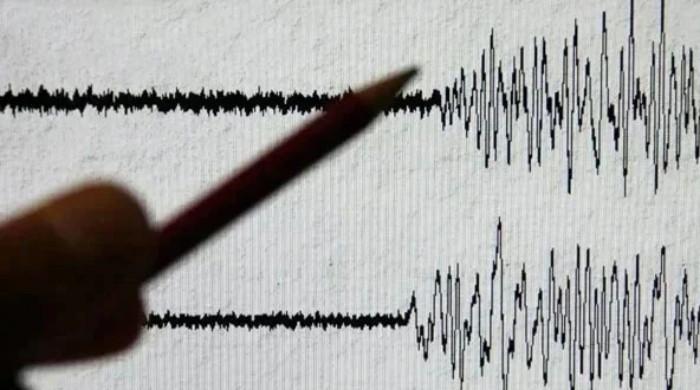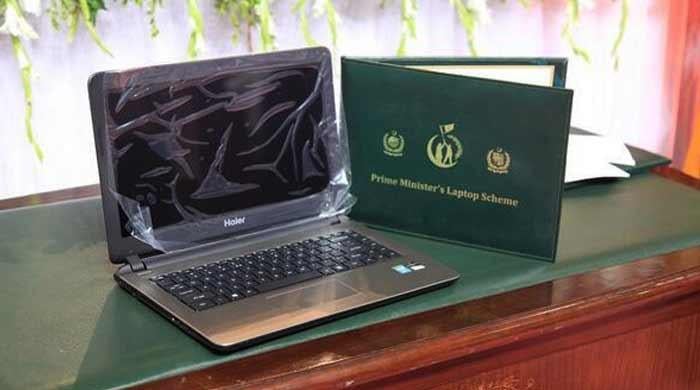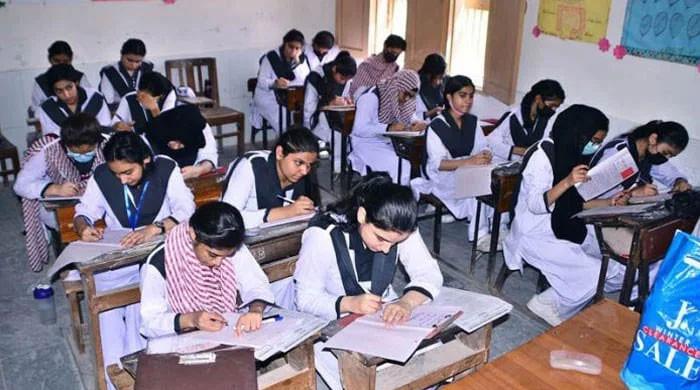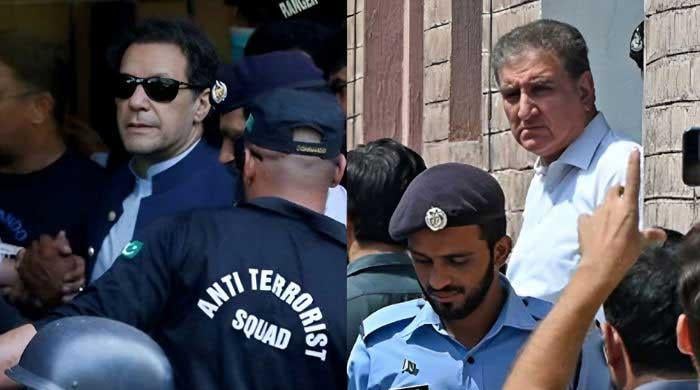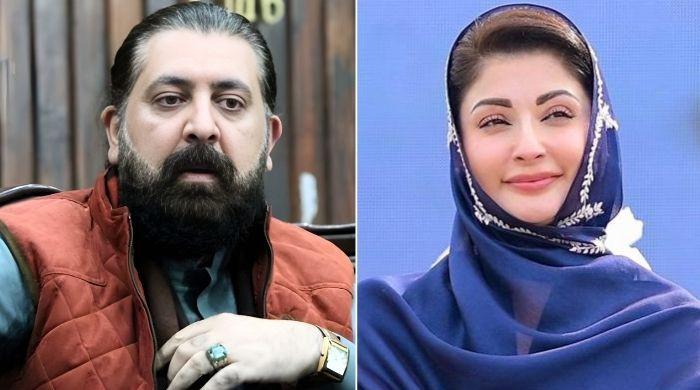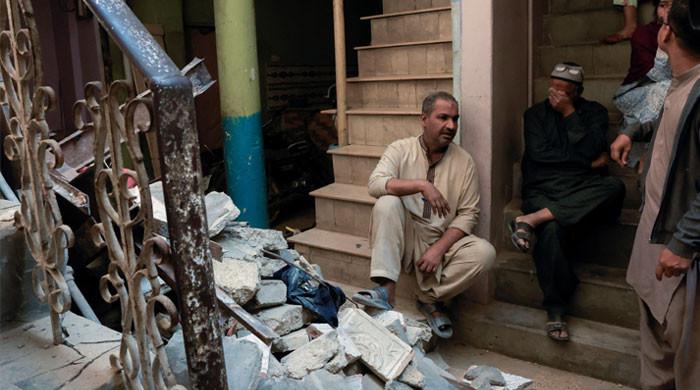PML-N to file review plea against Nawaz's disqualification: Sanaullah
Legal expert says Nawaz can't benefit from new review of judgements law as right to appeal already exercised
May 30, 2023
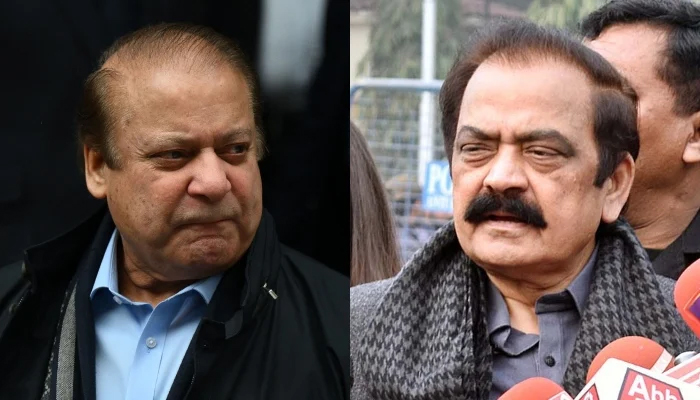
- Sanaullah says PML-N to request CJP not to hear plea.
- He says Nawaz's return was subject to his health and polls.
- Legal expert says Nawaz not in position to file review.
The Pakistan Muslim League Nawaz (PML-N) will file a petition in the Supreme Court to revisit the decision of party supremo Nawaz Sharif's disqualification to hold public office and the post of party president, Interior Minister Rana Sanaullah confirmed on Monday.
The apex court had disqualified Nawaz in the Panama Papers case on July 28, 2017, barring him to hold any public office for life for hiding unpaid salary from his son in the Panama case.
A year after, the court ruled on petitions challenging the Elections Act 2017, that a person disqualified under Articles 62 and 63 cannot serve as the head of a political party.
The interior minister, while speaking in an interview, said that the PML-N would request Chief Justice of Pakistan (CJP) Umar Ata Bandial not to be a part of the bench that hears the review plea — as the top judge is considered "biased" against the ruling party.
Meanwhile, he said that Nawaz's return was subject to his health and polls. When asked, the minister reiterated that the general elections will be held in October.
The Supreme Court Review of Judgements and Orders Bill, 2023, came into force Friday after President Arif Alvi’s assent. The law states that for reviewing a suo motu judgement, a bigger bench — than the one that issued the order — will hear the case.
"In case of judgements and orders of the SC in exercise of its original jurisdiction under Article 184 of the Constitution, the scope of review on both facts and law, shall be the same as an appeal under Article 185 of the Constitution," the law reads.
However, Law Minister Azam Nazeer Tarar is of the view said that the former premier and Pakistan Tehreek-e-Insaf’s (PTI) estranged leader Jahangir Khan Tareen cannot benefit from the new law regarding the review of judgements.
Speaking to Geo News on Monday, Tarar said that the Supreme Court (Review of Judgements and Orders) Bill 2023 will not benefit Nawaz and Tareen as they both have exercised their right of review against their sentences.
The law minister also said that the court's verdict was considered the final one under Article 184(3), stating that "there is no room for revision or curative review in our law".
"Under the new law, common people would be given relief under Article 184(3)," he added.
Legal expert's opinion
While speaking on Geo News programme 'Geo Pakistan', senior analyst and law expert Muneeb Farooq said that the option of filing a review petition was already there but its scope was limited.
However, after the law came into effect, a review/appeal can be filed on not only the question of fact but also the question of law as well, he added.
Explaining the matter further, Farooq said that earlier, the judges who had given the original decision would hear the review but the number of judges had now been increased under the new law.
From now, review pleas can be filed in all the cases in which the option had not been availed, within the 60 days of the law coming into effect, he said, adding that a new bigger bench will be formed to adjudicate the cases under review pleas.
However, he supported Tarar’s perspective, saying that a review plea had already been filed in the disqualification case of Nawaz.
Nawaz does not have the option to file a review as he has already exhausted the right and it was turned down. Similarly, he said that Tareen was also not in a position to benefit from the new law.
However, there could be an exception as no review had been filed in the SC’s “Samiullah Baloch vs Abdul Karim Nousherwani” case, which held that electoral disqualification was for life.
In 2018, the top court imposed a lifetime ban, holding that the Islamic principles of ‘tauba’ (repentance) and ‘maghfirat’ (forgiveness) shall not be applicable “because higher standards are expected from persons aspiring to be members of parliament”.
Farooq said that the subject matter in the case was that the court had determined under Article 62(1) f that the disqualification of anyone under the said article would be for life.
He said that a review hadn’t been filed in this case and if it is filed and the larger bench overturns the original decision, the situation could be different for Nawaz and Tareen
It is interesting to note that in the Samiullah Baloch case, the judgment authored by Justice Bandial, held that the incapacity created for failing to meet the qualifications under Article 62(1) (f) of the Constitution imposes a permanent bar which remains in effect so long as the declaratory judgement supporting the conclusion of one of the delinquent kinds of conduct under Article 62(1) (f) of the Constitution remains in effect.




